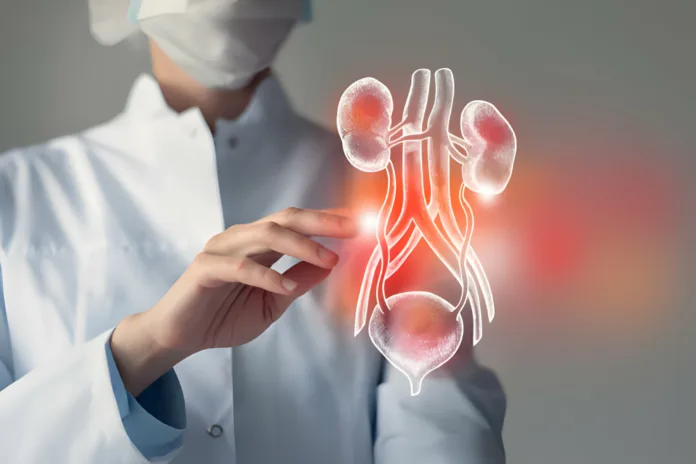Diabetes and kidney health are intricately linked, with one significantly impacting the other. Understanding this connection is crucial for individuals with diabetes, as early intervention can significantly slow the progression of kidney damage.
The Mighty Marvels: Understanding Kidneys
Our kidneys are two bean-shaped organs located near the lower back. They play a vital role in our overall health by:
Filtering waste products and excess fluids from the blood: These waste products are then expelled through urine.
Maintaining electrolyte balance: Electrolytes are minerals crucial for various bodily functions, like muscle movement and nerve transmission.
Producing hormones: These hormones regulate blood pressure, red blood cell production, and bone health.
The Domino Effect: How Diabetes Affects Kidneys
When we have diabetes, our bodies either struggle to produce enough insulin (type 1) or become resistant to its effects (type 2). This leads to persistently high blood sugar levels, which can wreak havoc on our kidneys in two main ways:
Damage to Blood Vessels: Chronically high blood sugar damages the delicate blood vessels throughout the body, including those in the kidneys. These damaged vessels become leaky and inefficient, hindering the kidneys’ ability to filter waste properly.
Scarring and Inflammation: Over time, the damaged blood vessels trigger inflammation and scarring within the kidneys. This further diminishes their filtering capacity, leading to a gradual decline in kidney function.

The Silent Threat: Recognizing Kidney Disease
Unfortunately, diabetic kidney disease often progresses silently, with no noticeable symptoms in its early stages. As the condition worsens, individuals might experience:
Frequent urination, especially at night
Fatigue and weakness
Loss of appetite
Swelling in the ankles and feet
High blood pressure
Early Detection, Effective Action
The good news is that with early detection and proper management, the progression of diabetic kidney disease can be significantly slowed, even prevented. Here are some key steps:
Regular checkups and screenings: Individuals with diabetes should undergo regular blood and urine tests to monitor kidney function.
Maintaining healthy blood sugar levels: This is the cornerstone of preventing and managing diabetic kidney disease.
Controlling blood pressure: High blood pressure further accelerates kidney damage, so keeping it under control is crucial.
Healthy lifestyle choices: Maintaining a healthy weight, eating a balanced diet, and engaging in regular physical activity all contribute to kidney health.
Remember: Early detection and intervention are key to protecting your kidney health when living with diabetes. If you have any concerns, consult your doctor to discuss personalized strategies to safeguard your health and well-being.




